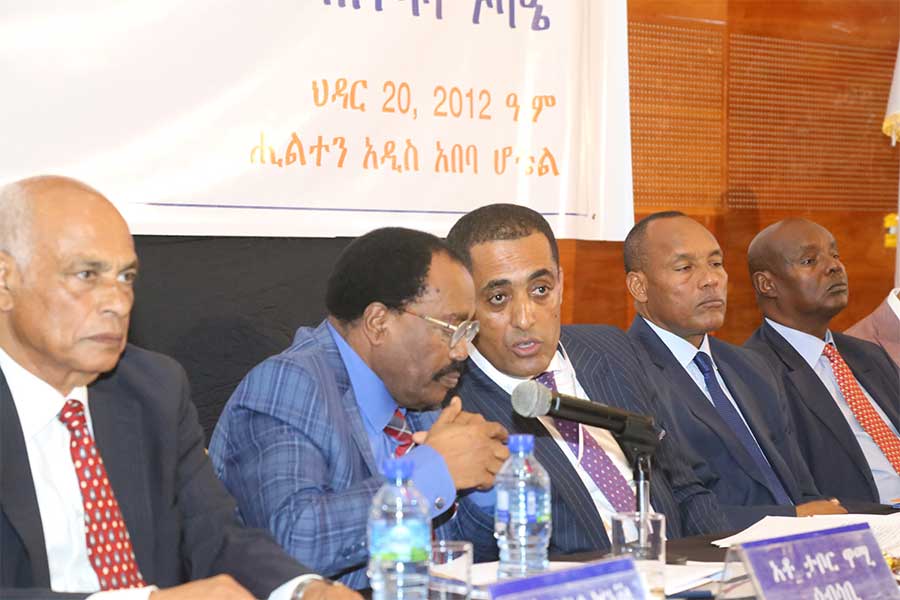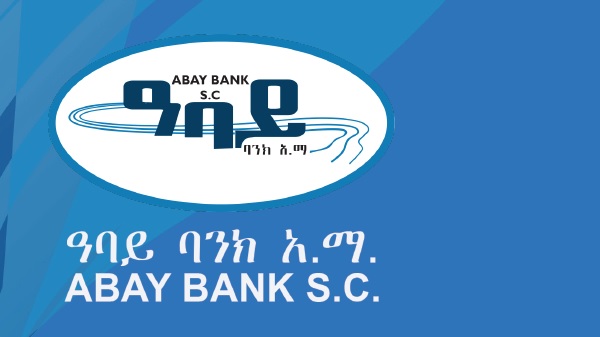
News Analysis | Dec 09,2023
Zemen Bank is the latest to join an international e-commerce gateway service partnering with the global payment service provider, Mastercard. The gateway is a merchant service provided through an e-commerce application that authorises credit card or direct payment processing for e-business transactions.
The international payment gateway integrates local businesses to provide users, such as members of the Diaspora, the option to pay for goods and services using credit cards issued where they reside. Zemen Bank's executives eye partnership potential with 200 businesses within the next six months, provided they meet the Bank's criteria. Hotels, food delivery services, grocery stores and supermarkets are among the businesses Zemen Bank is looking to partner with.
The process of integrating with Mastercard Payment Gateway Services (MPGS) took six months, according to Amha Tadesse, vice president of information and technology at Zemen.
“Users need to have a business account and integrate with the Bank,” Amha told Fortune.
The Bank plans to roll out 100,000 standard cards for users.
Last year, the Bank and Mastercard partnered to roll out contactless prepaid cards, allowing travellers to book flights and hotels using foreign currency. Close to 2,000 people use the travel card.
Zemen Bank is only one among a growing number of banks joining the e-commerce gateway, partnering with international payment service providers. The presence of international payment facilitators in Ethiopia dates back to 2005 when the Commercial Bank of Ethiopia (CBE) received Visa membership. However, the state-owned Bank failed to launch e-payment services for inadequate infrastructure.
Dashen Bank began accepting Mastercard in 2008, after becoming a Visa member.
In January 2021, the Bank of Abyssinia began issuing e-commerce enabled domestic and international cards that customers can use to make online payments. The Bank has availed six types of interest-free international and domestic debit cards in partnership with Visa. Abyssinia Bank had issued close to one million cards last year, while close to 920,000 users had subscribed to its BoA-Mobile and Abyssinia Online platforms.
Abyssinia Bank has plans to issue standard Visa cards to bolster international e-commerce gateway services, according to Sosina Mengesha, chief digital banking officer at Abyssinia Bank.
“We're working on the second level authentication with Visa,” Sosina told Fortune. “Around 20,000 transactions have been made through e-commerce gateway platform thus far.”
Industry players say there is growing demand from business owners with foreign currency accounts interested in making transactions with their counterparts abroad. Local businesses that accept payments from abroad and international cardholders are the primary beneficiaries, says Sosina.
Two years ago, the central bank had issued a directive that allows the opening of forex accounts to foreign nationals residing in Ethiopia with a minimum deposit of 50 dollars.
Launched by ETTA Solutions Plc, a company incorporated with five million Birr in initial capital two years ago, ZMall, an online delivery platform that offers food, groceries and beverages, started to work with Abyssinia a month ago. The e-commerce and delivery platform formed under ETTA connects 150 restaurants and five supermarkets. Its managers say they are happy with the service so far.
“We're facilitating 200 orders a week through Abyssinia’s platform,” said Temesgen Geberehiwot (PhD), a founder.
The company previously used payment platforms such as CBE-Birr and Dashen Bank's Amole.
Mastercard and the CBE have also partnered to provide a payment platform for users to pay for public services through a government services portal. The venture is part of a project implemented by the Ministry of Innovation & Technology to boost a government digital transformation plan introduced a year ago. The partnership will see Mastercard integrate its payment gateway services infrastructure with the CBE to enable payment collection on behalf of the state.
According to a Director at the Ministry, the project's first phase will kick off in the coming few weeks.
As part of the first phase, civil society organizations can pay for registration with the Authority for Civil Society Organisations through the government-services portal using any payment card. The Ethiopian Construction Authority and the Accounting & Auditing Board of Ethiopia will also offer services in the same way, according to the Director.
Industry insiders, however, say most domestic bank clients are proscribed from making international retail payments, with exceptions granted for a limited set of purposes such as travel. Still, they observe that the initiatives encourage savings in foreign currency, with banks taking service charges.
It provides a guarantee for both the buyer and seller on top of benefiting banks, according to Amha.
“Abyssinia is not charging any fees for the service," said Sosina. "Our primary objective is to broaden the client base.”
A financial technologies consultant says the interoperability of payment platforms is necessary to allow two or more proprietary systems to interact seamlessly and to enable the exchange of payment transactions between and among payment service providers. A report published by the United Nations Capital Development Fund emphasises that establishing connectivity with international hubs and gateways is essential to achieve lower costs and higher speeds in cross-border payments, with lowered credit and liquidity risks.
PUBLISHED ON
Apr 02,2022 [ VOL
23 , NO
1144]

News Analysis | Dec 09,2023

Fortune News | Feb 08,2020

Fortune News | Jun 20,2020

Covid-19 | Apr 04,2020

Fortune News | Oct 23,2018

Fortune News | Feb 23,2019

Fortune News | Oct 03,2020

Fortune News | Jun 01,2024

Radar | Oct 18,2025

Radar | Sep 24,2022

Dec 22 , 2024 . By TIZITA SHEWAFERAW
Charged with transforming colossal state-owned enterprises into modern and competitiv...

Aug 18 , 2024 . By AKSAH ITALO
Although predictable Yonas Zerihun's job in the ride-hailing service is not immune to...

Jul 28 , 2024 . By TIZITA SHEWAFERAW
Unhabitual, perhaps too many, Samuel Gebreyohannes, 38, used to occasionally enjoy a couple of beers at breakfast. However, he recently swit...

Jul 13 , 2024 . By AKSAH ITALO
Investors who rely on tractors, trucks, and field vehicles for commuting, transporting commodities, and f...

Oct 25 , 2025
The regulatory machinery is on overdrive. In only two years, no fewer than 35 new pro...

Oct 18 , 2025
The political establishment, notably the ruling party and its top brass, has become p...

Oct 11 , 2025
Ladislas Farago, a roving Associated Press (AP) correspondent, arrived in Ethiopia in...

Oct 4 , 2025
Eyob Tekalegn (PhD) had been in the Governor's chair for only weeks when, on Septembe...